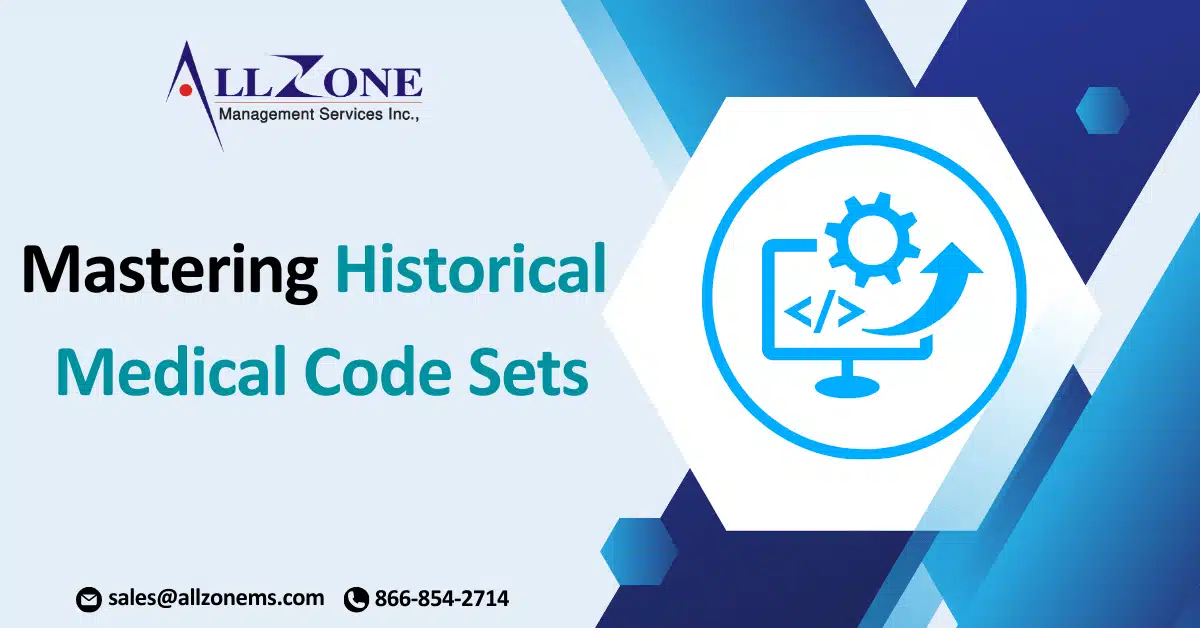Remaining up-to-date is essential in the healthcare industry, but relying solely on current codes isn’t always the best approach. When auditing, handling appeals, or researching code usage for past encounters, a solid grasp of the descriptors and guidelines applicable during the date of service (DOS) can profoundly impact outcomes. Here’s a concise guide on effectively utilizing historical medical code sets.
Auditing with the Right Codes and Rules
Medical coding auditors, whether employed by healthcare providers, facilities, consultants, insurers, or external organizations, play a pivotal role in improving coding accuracy. Their work helps organizations direct training efforts effectively, resulting in timely claim reimbursements, enhanced patient experiences, and reduced financial and legal risks associated with coding errors.
However, audits often occur in a different quarter or year than the original DOS, leading to discrepancies in codes, descriptors, and guidelines. To ensure audit accuracy, it is vital to reference the historical medical code sets applicable during the DOS. A senior auditor from AAPC Services notes that access to these code sets is a game-changing advantage.
Auditors also need a thorough understanding of current codes and rules, as they often provide training to enhance documentation and medical coding practices. By keeping providers and coders informed about the latest guidelines, auditors help ensure accuracy in ongoing work. Thus, auditors require access to both historical and current code sets to perform their duties effectively.
Appeals Based on DOS Guidelines
The principles for auditing by DOS also apply to appeals. Whether you’re a healthcare provider or payer, validating a claim’s accuracy based on the DOS is critical. Reviewing the provider’s documentation and consulting the relevant historical code set can help determine proper coding. In some cases, delving into previous years’ code sets is necessary to establish the correct rules.
Additionally, access to historical versions of the National Correct Coding Initiative (NCCI) edits can be invaluable, as suggested by experts like Brink. Referring to past Medicare Physician Fee Schedule (MPFS) fees and indicators that were in effect on the DOS can further ensure claim accuracy.
Research for Legal and Academic Purposes
Professionals conducting retrospective research or legal analysis benefit greatly from historical medical code sets. For example:
- Legal professionals rely on historical codes to assess claims accurately in fraud cases or other legal disputes.
- Medical researchers and statisticians need access to codes from past years to track diagnoses and procedures over time for their studies.
Having historical medical code sets readily available simplifies research and ensures swift identification of relevant records.
Finding Historical Code Sets
Access to historical medical code sets is invaluable for producing high-quality work across various healthcare roles. Coders, auditors, and healthcare organizations often maintain physical copies of old code books, such as CPT® volumes. Online resources also host historical medical code sets, including ICD-10-CM, ICD-10-PCS, and HCPCS Level II.
For those who find physical storage inconvenient or prefer a digital format, coding software solutions offer robust alternatives. For example, Codify provides subscribers with a beta feature granting access to historical codes, guidelines, Medicare fee data, and NCCI edits. The software even highlights code updates, offering a quick review of historical changes.
As Brink points out, while traditional methods like using physical code books are still common, software tools streamline the process, saving time and reducing the need for physical storage. This eliminates the hassle of juggling books, reviewing old guidelines, and manually tracking changes, enabling professionals to focus on delivering precise results.
By leveraging both historical and current code sets, healthcare professionals can ensure accuracy, compliance, and high-quality outcomes across audits, appeals, and research initiatives.
The Importance of Historical Medical Code Sets with Allzone MS
Historical medical code sets are vital for medical coding companies, forming the foundation of accurate billing, reimbursement, and compliance processes. Systems like ICD-9, CPT’s early editions, and HCPCS Level III were instrumental in standardizing healthcare documentation. Understanding these legacy codes allows coding professionals to interpret older claims and manage transitions to modern systems, such as ICD-10 and ICD-11, ensuring continuity and compliance.
Retrospective Audits and Claim Appeals with Allzone MS
Retrospective audits and claim appeals often require referencing older code sets, making historical knowledge essential for accurate record interpretation and claim processing. Allzone MS empowers coders to easily access and reference historical code sets, streamlining the audit and appeal process.
Bridging Legacy Systems with Modern Technologies
Additionally, medical coding companies play a key role in bridging legacy systems with modern technologies, ensuring seamless integration and preserving data integrity. Allzone MS facilitates this transition by providing tools and resources to effectively manage historical and current code sets.
Enhancing Denial Management and Training
Expertise in historical codes supports effective denial management, particularly for claims tied to outdated coding frameworks. Allzone MS helps identify and address coding errors, reducing the risk of denials. It also enhances training programs, equipping staff to navigate complex scenarios involving historical codes.
Leveraging Historical Data for Insights
Furthermore, coding companies utilize historical datasets to train AI tools and perform long-term healthcare trend analyses, adding value to providers. Allzone MS provides the necessary tools to extract insights from historical data, enabling data-driven decision-making.
Conclusion
By mastering historical medical code sets, medical coding companies not only improve operational accuracy but also position themselves as reliable partners in adapting to evolving healthcare standards and innovations, ensuring efficiency, compliance, and enhanced outcomes. Allzone MS is powerful tools that can help medical coding companies navigate the complexities of historical codes and modern healthcare.

